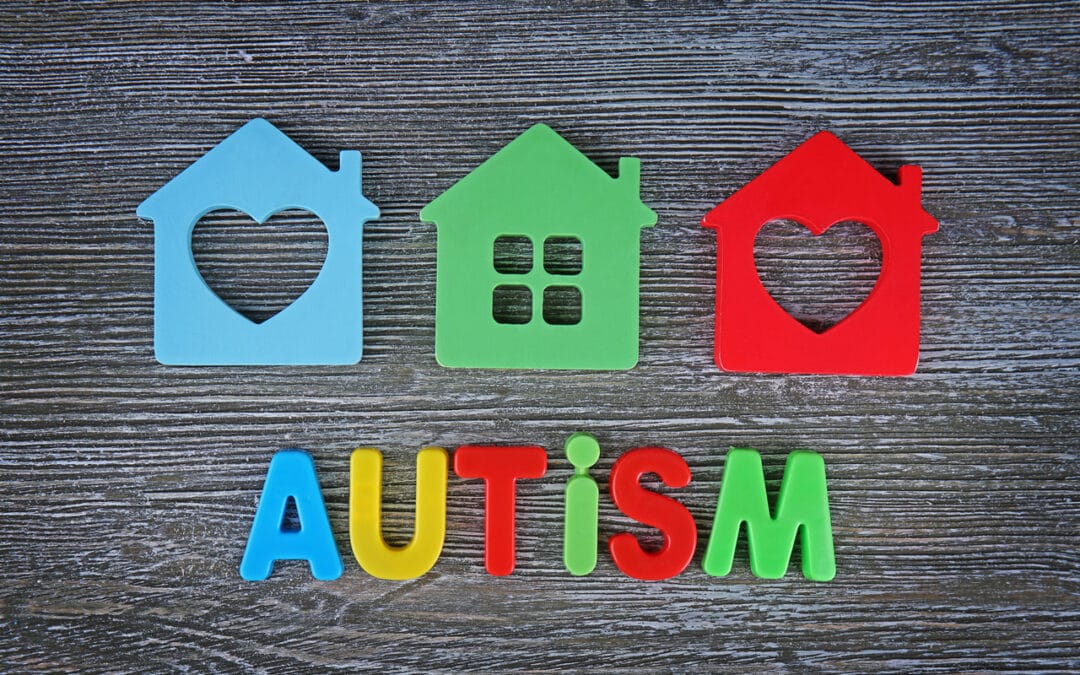According to recent data from the Centers for Disease Control and Prevention (CDC), about 1 in 54 children have autism spectrum disorder (ASD). Another CDC study estimates almost 2% of the adult population (18 years +) have an ASD.
Because of the effect of autism, those diagnosed with it (children and adults) need varied medical and social services. These services can financially drain those who love and care for individuals with autism.
If your loved one has autism, they could receive disability benefits to help with the cost of the services they need.
What is Autism Spectrum Disorder?
Autism Spectrum Disorder (ASD) is a neurological disorder that affects the development of the brain’s information processing capabilities. It can result in individuals having difficulty interacting with others and finding comfort in repetitive behavior patterns. The effect of ADS on individuals varies. Those with minor effects can function with less assistance. Those with severe effects may need extensive services throughout their lifetime. There are three disorders in the “Autism spectrum”:
- Autism
- Asperger Syndrome (AS)
- Pervasive Developmental Disorder (PDD-NOS)
Each condition is present from birth and typically diagnosed by the age of three. However, many with AS and PDD-NOS do not get diagnosed until their teen or adult years. Symptoms of ASD vary in both the degree and type but the most common symptoms include:
- Communication problems such as a delay in speaking and forming words, withdrawing from interacting with others, limited eye contact
- Repetitive movements such as rocking, hand flapping, head rolling
- Compulsive behaviors such as rearranging objects and needing a controlled environment
Currently, no cure exists for Autism Spectrum Disorder. Yet, treatments exist to help manage the disorder, especially if diagnosis and treatment begin early.
Autism Spectrum Disorder and Disability Benefits
Children and adults diagnosed with a form of ASD could qualify for disability benefits. Children under 18 could receive Supplemental Security Income (SSI) if their family meets financial eligibility criteria. Those 18 and older could qualify for SSI on their financial status or receive Social Security Disability Insurance (SSDI) through Disabled Adult Child (DAC) benefits. To receive the DAC benefits at least one of the individual’s parents must receive Social Security Retirement or SSDI themselves or deceased with a work history with enough work credits.
The Social Security Administration (SSA) has medical criteria individuals must meet to qualify for these benefits. These criteria are found in the SSA’s Listing of Impairments. This list comprises categories of medical conditions with detailed requirements individuals must meet before being approved for disability. Children and adults applying for benefits for ASD must provide medical evidence showing all the following factors:
- Qualitative deficits in verbal communication, nonverbal communication, and social interaction; and
- significantly restricted, repetitive patterns of behavior, interests, or activities.
AND
Extreme limitation of one, or marked limitation of two, of the following areas of mental functioning:
- understanding, remembering, or applying information
- interacting with others
- concentrating, persisting, or maintaining pace
- adapting or managing oneself
Individuals not meeting the disability listing could still qualify under an alternative method. For those under 18, the SSA will consider all the child’s limitations to see if they functionally equal one listing. Under this method, the SSA requires medical documentation of marked limitation in two of the following functional areas or extreme limitation in one area of function:
- child’s ability to move about and manipulate objects
- child’s ability to care for themselves
- child’s health and physical well-being
- child’s ability to acquire and use information
- child’s ability to attend to and complete tasks
- child’s ability to interact and relate with others
For adults with ASD, the SSA will assess the individual’s residual functional capacity (RFC). RFC measures the individual’s ability to perform in a work setting. The SSA will use medical records and evaluations to assess and compare the individual’s ability to do the following:
- sit, stand, and walk
- work with others
- concentrate on tasks
Getting Help
Applying for disability for ASD can be overwhelming and complex. Because symptoms of ASD vary so greatly, it could be difficult to qualify. An experienced disability attorney can help you navigate the complexities and work with you to get your loved one the benefits they need. Contact Brock & Stout today for a free evaluation to see if our family can help your family.

